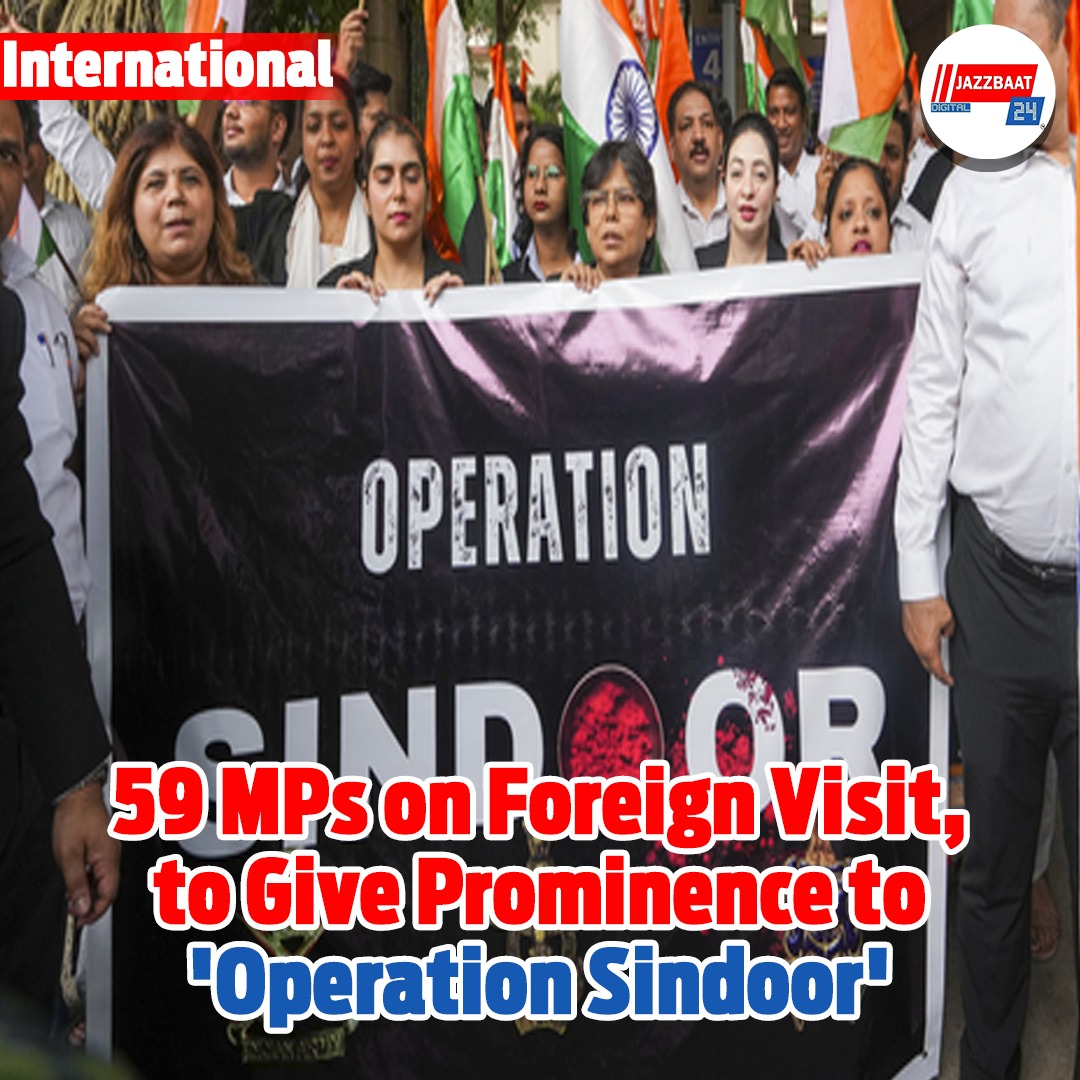
The central government has made a strategic move to promote the success of India's recent counter-terrorism operation 'Operation Sindoor' at the global platform. Under this program, 59 MPs of the Parliament are being dispatched to various nations of the world, who will demonstrate India's security policy, its victory in counter-terrorism and the resilience of the democratic structure to the global community. These MPs would be split into seven individual delegations to various regions of the world. Interestingly, three MPs from the state of West Bengal have also been included in this list - Trinamool Congress's Sudip Banerjee, freshly elected sensation Yusuf Pathan and BJP's Shamik Bhattacharya.
Background of 'Operation Sindoor'
'Operation Sindoor' was a very significant military and strategic move in the border area, by which the Indian government simultaneously dealt with terrorism and gave a strong message to the world. Operation is being viewed as a testimony to the prevention of militant infiltration, internal security system's strength of the country and the proactive role of the Indian Army on the border. Multiple sources have said that some terrorist camps were found and eliminated in this operation and sleeper cells operating in many states of the country were eliminated as well.
International Diplomacy and Parliamentary Strategy
In the recent era, the practice of sending parliamentary groups has become a new strategy in the diplomatic arena. The delegations are not just to bring India's stand to the forefront overseas but also to consolidate bilateral ties, engage directly with foreign parliamentarians, and facilitate global support for India. This 59-member MP visit is the extension of that vision, where 'Operation Sindoor' is turning into a core message.
Seven delegations - detailed travel plan
For making this visit effective, the MPs have been split into seven delegations, and for each delegation, there is a particular travel destination. Every delegation is accompanied by seasoned politicians, who will emphasize India's position in the given region.
Group 1: Baijayant Panda's group will travel to Saudi Arabia, Kuwait, Bahrain and Algeria. Indian energy security and regional migration policy will be discussed.
Group 2: Ravi Shankar Prasad's group of MPs will travel to England, France, Germany, Italy, Denmark and the European Union. India's strategic partnership and protection of democracy in Europe are likely to be discussed.
Group 3: Sanjay Kumar Jha's team will go to East and Southeast Asian nations. The area falls under India's 'Act East' policy.
Group 4: Shrikant Shinde's team will travel to Middle Eastern and African nations. Trade with Africa and counter-terrorism will be the topics of discussion.
Group 5: The MPs headed by Shashi Tharoor will go to various countries in America and Latin America. Tharoor's experience will contribute to making India known internationally.
Group 6: Kanimozhi will head a visit to Spain, Greece, Slovenia, Latvia and Russia. Historical relations with Russia, India's dialogue with the peripheral states of the European Union - all these matters are significant.
Group 7: Supriya Sule will take a group to Egypt, Qatar, Ethiopia and South Africa. India is keen on enhanced cooperation in agriculture, technology, health and defence in these countries.
Delegates from West Bengal
There are three MPs from West Bengal in three different groups among the seven groups. Sudeep Banerjee is not going due to physical health reasons, but his nomination is a testament to Bengal's significant role. The newly appointed Yusuf Pathan will be in a position to easily deliver India's message on the global front through his known face and popularity. Secondly, Shamik Bhattacharya's political background and outspoken views will also add more strength to India's stand.
Importance of this move
India wishes to consolidate its place in the world not merely with military might, but also through sending diplomatic and democratic signals. Just as 'Operation Sindoor' is a military victory, similarly this MP's visit is its global interpretation. The collective involvement of all parties lends political neutrality and all-party consensus to this mission, which reflects the political maturity and national harmony of India in the world.
Conclusion
India aims to realize not only the success of 'Operation Sindoor' at the battlefield, but its global acknowledgement through this visit as well. The seven delegations will project India's role, the resilience of democracy and security measures across the globe. On the one hand, this will illuminate the nation's image, and on the other hand, foreign investment, diplomatic ties and security cooperation will open new vistas in these three fields. Political circles believe that the presence of Bengali MPs has given special importance to this mission.